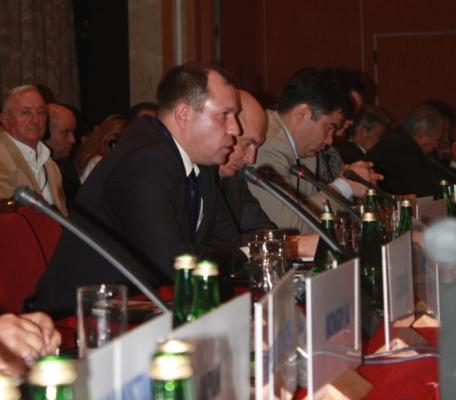
We are publishing the text of Mr. Kalyapin’s speech
Human Dimension Implementation Meeting,
Warsaw, 28 September 2009 – 9 October 2009
Working session: Rule of Law I
Igor Kalyapin
Chairman of INGO “Committee Against Torture” (Russia)
Article 46 of the Constitution guarantees individuals the right to initiate court proceedings when they face abuse of office. My organization has been representing torture victims’ interests in courts and different state bodies for ten years. Both in Russia and in the ECtHR. Therefore, I find it necessary to inform the Meeting how the right of access to court manifested in the RF Constitution is implemented in practice.
In Russia, before torture complaints get to court, they are to be investigated by competent authorities – prosecutorial bodies, and to be more exact, by the Investigation Committee under the Prosecutor’s Office. According to my knowledge, there is a similar pre-trial investigation procedure in many OSCE participating countries. But in my country the pre-trial investigation process basically debars torture victims from justice.
This happens due to prosecutorial investigators who on a regular basis breach the law and, in fact, stonewall investigation in violation of all international and domestic effective investigation standards. Moreover, they remain unpunished. De facto, investigators aim at terminating the investigation and relieving the perpetrators from a lawful criminal charge. Consequently, even if there is indisputable evidence of tortures, investigators would almost in any case issue a decision to stop the official investigation. Lawyers working in our organization and representing torture victims’ interests customarily have to go to court to prove that such decisions are unlawful and make the prosecutor’s office resume the proceedings. However, in this situation the court can only render the refusal to perform the official investigation unlawful, but it cannot try the torture case on the merits. Some time later the investigation authorities again decide to stop the investigation and the court finds this decision unlawful one more time.
Thus, official investigations may be stretched out over years and years; until the prosecutor’s office brings in an indictment, the court cannot try the case on the merits. The majority of cases we worked with had been investigated for several years before the court got a chance to adjudicate on them. It is evident that without professional legal aid the victim has no chance to reach the court and have his/her complaint tried on the merits. At the same time, prosecutorial investigators who repeatedly issue decisions to terminate the investigation which are found illegal in court are never punished.
Thus, we may conclude that prosecutorial investigators obstruct official investigations of torture complaints either due to sufferance or with the tacit approval of higher-standing officials from the Investigation Committee under the RF Prosecutor’s Office.
Although this problem is being much discussed in Russia, the situation does not improve. Law enforcement agents often resort to various kinds of tortures and inhuman treatment. However, state agents are rather rarely charged with abuse of office because the competent authorities in charge of pre-trial investigation prevent victims from accessing the court. Justice is only done when victims’ interests are represented by professional lawyers, and even in such a case it may take several years.
Therefore, it is essential for the Russian Federation represented by the Investigation Committee under the Prosecutor’s Office to put an end to the malpractice of unlawful termination of criminal proceedings that deprives torture victims of their right to seek justice in court.